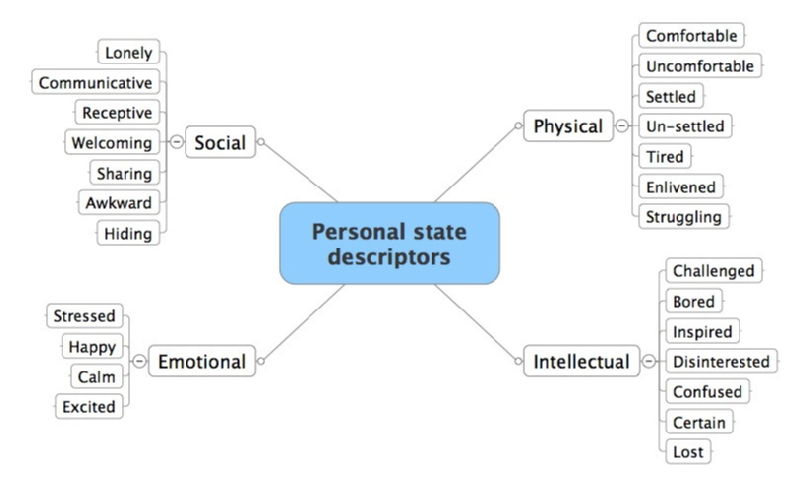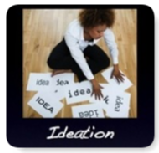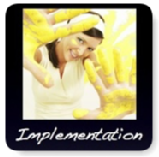Personal state descriptors for case studies
I am looking for a simple, unobtrusive method for surveying the physical, intellectual, social and emotional states of students participating in experimental teaching sessions. I have in the past done similar exercises in focus groups, however in teaching the survey methods must not get in the way of the learning process.
The simplest approach would be to present each student with a list of personal state descriptors, and get them to tick the words that represent their current state. This could be repeated at key points during the lesson. For example, when bringing the students into an unfamiliar spatial organisation. But how to choose the words? There can't be many of them in the list. I can give the student a space to add their own words. But if I get the right set of words, it just might work. Here's some ideas:

Any suggestions are most welcome.
 Robert O'Toole
Robert O'Toole

 Please wait - comments are loading
Please wait - comments are loading





